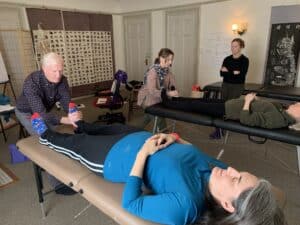The sensation that you or your surroundings are moving or spinning is known as vertigo. Vertigo is not a condition but a symptom associated with various body imbalances, infections, or inflammation. Bouts of dizziness and vertigo may come on suddenly and subside within a few seconds, or they may persist for more extended periods and interfere with your ability to perform daily activities. While more comprehensive clinical studies are needed, some research indicates that acupuncture therapy may offer effective and lasting relief from dizziness and vertigo.
Understanding the Underlying Causes of Vertigo
Vertigo often stems from inner ear imbalances, but other conditions may cause vertigo as well. There are two primary types of vertigo: peripheral vertigo and central vertigo. Issues with the cerebellum or brainstem (i.e., migraines, multiple sclerosis, brain tumors, etc.) can lead to central vertigo. Peripheral vertigo is more common and often arises from imbalances in the mechanisms of the inner ear. Inner ear infections and inflammation, such as labyrinthitis or vestibular neuronitis, can lead to vertigo and dizziness. Head injuries, Meniere’s disease, and even certain medications can also cause vertigo. Benign paroxysmal positional vertigo (BPPV), a common cause of vertigo, occurs when specific bodily actions (standing up, bending over, or making certain head movements) trigger intense—usually brief—vertigo attacks. While the precise causes of BPPV remain unknown, the working hypothesis is that tiny calcium carbonite crystals that naturally separate from the inner ear lining send confusing messages to your brain when you make certain movements.
How Western Medicine Approaches Vertigo
For many people, vertigo passes quickly and may only require a brief moment of lying down or regrounding to recover. Other lifestyle changes, such as managing stress, avoiding caffeine and alcohol, and sleeping with your head raised on two or more pillows, can help to reduce the number and severity of vertigo events. For individuals with intense vertigo, Western doctors may prescribe medication, such as prochlorperazine and antihistamines. Unfortunately, these medications sometimes carry unwanted side effects, like tremors, involuntary facial movements, drowsiness, headaches, upset stomach, and more.
Acupuncture Shows Promise in Relieving Dizziness and Vertigo
Although more comprehensive studies are needed to explore the efficacy of acupuncture in treating vertigo, the existing research is encouraging. One systematic review and meta-analysis examining the effectiveness of acupuncture for treating cervical vertigo found that acupuncture may be more effective in improving clinical symptoms and stimulating the “blood flow velocity of the vertebral-basilar artery compared with conventional medicine therapy” for cervical vertigo. Another study exploring the efficacy and safety of acupuncture for vertigo concluded that even a 30-minute treatment led to an immediate and significant reduction in dizziness and vertigo. This study acknowledged that while healers have used acupuncture to alleviate vertigo and dizziness for over a thousand years, more clinical research is needed to explore this promising therapy.
Located in beautiful NW Portland, Inner Works Acupuncture offers deep and lasting healing with Five Element Acupuncture, herbal medicine and nutritional therapies. If you’re interested in learning more about how acupuncture can relieve dizziness and vertigo symptoms, call (503) 227-2127 today to schedule an appointment.



